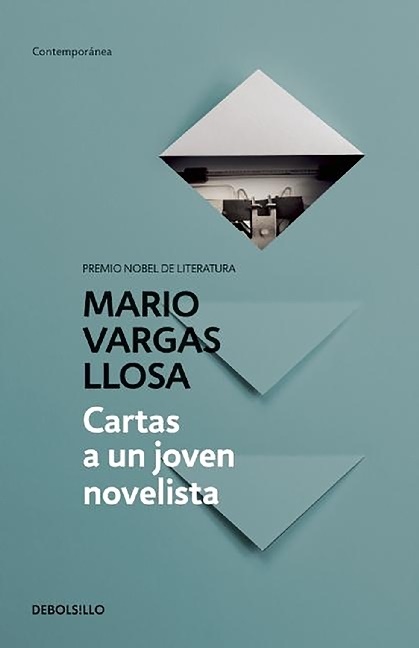Share
Fr. 27.50
Mario Vargas Llosa, Mario Vargas Llosa
Cartas a un joven novelista / Letters to a Young Novelist
Spanish · Paperback / Softback
Shipping usually within 1 to 3 weeks (not available at short notice)
Description
"El escritor siente íntimamente que escribir es lo mejor que le ha pasado y puede pasarle, pues significa para él la mejor manera posible de vivir." Mario Vargas Llosa dirige a todos aquellos que tienen la ilusión de llegar a ser escritores unas magníficas reflexiones en forma epistolar acerca del arte de narrar. Cómo comenzar a cristalizar esa vocación en obras literarias, por dónde empezar esa aventura, de dónde salen las historias que cuentan las novelas... son algunas de las preguntas a las que el Premio Nobel de Literatura da respuesta en este libro, que se convierte así en una lección magistral del oficio de escribidor. Detrás de esas aventuras ficticias que encienden la imaginación de los lectores y los conmueven, hay no sólo intuición, fantasía, invención y una pizca de locura, sino también terquedad, disciplina, organización, estrategia, trampas y silencios, y una urdimbre compleja que levanta y sostiene en vilo la ficción. ENGLISH DESCRIPTION Written as a collection of letters, in these magnificent reflections on the art of narrating, the Nobel Laureate responds to such questions as how to transform this calling into tangible literary works, where to begin the journey, how the plot of a novel is created, and where does a novelist find inspiration.
About the author
Mario Vargas Llosa wurde am 28. März 1936 in Arequipa (Peru) geboren. Seine Kindheit verbrachte er in Bolivien, Piura (Nordperu) und Lima. Im Alter von 18 Jahren heiratete er Julia Urquidi, mit der er neun Jahre zusammenlebte. Diese Beziehung verarbeitete er später in seinem Roman Tante Julia und der Kunstschreiber . Bereits während seines Studiums der Geistes- und Rechtswissenschaften in Lima und Madrid (Promotion über Gabriel García Márquez) schrieb er für verschiedene Zeitschriften und Zeitungen und veröffentlichte erste Erzählungen. 1963 erschien sein erster Roman La ciudad y los perros (dt. Die Stadt und die Hunde ), der auf eigenen Erfahrungen in der Kadettenanstalt Leoncio Prado in Lima beruht. Der Roman wurde in Spanien mehrfach ausgezeichnet und in über 20 Sprachen übersetzt. Vargas Llosa war als Gastprofessor in Washington, Puerto Rico, London, New York und Cambridge tätig. 1989 bewarb er sich als Kandidat der oppositionellen Frente Democrático für die peruanischen Präsidentschaftswahlen und unterlag 1990 im zweiten Wahlgang. Daraufhin zog er sich aus der aktiven Politik zurück. Mario Vargas Llosa ist Ehrendoktor verschiedener amerikanischer und europäischer Universitäten und hielt Gastprofessuren unter anderem in Harvard (1992), Princeton (1993) und Oxford (2004). 2010 erhält er den Nobelpreis für Literatur "für seine Kartografie von Machtstrukturen und seine energischen Bilder des individuellen Widerstands, der Rebellion und Niederlage". Heute lebt Mario Vargas Llosa mit seiner Frau Patricia in Madrid und Lima.§Er gehört zu den bekannten lateinamerikanischen Autoren. Sein umfangreiches Gesamtwerk umfasst neben Romanen auch Erzählungen, politische Betrachtungen, Theaterstücke und Essays. 1977 gewählt zum Präsidenten des Internationalen P.E.N.-Clubs. 1996 ausgezeichnet mit dem Friedenspreis des Deutschen Buchhandels und 2008 mit dem Freiheitspreis der Friedrich-Naumann-Stiftung. 2010 erhielt Mario Vargas Llosa den Nobelpreis für Literatur.
Summary
«El escritor siente íntimamente que escribir es lo mejor que le ha pasado y puede pasarle, pues significa para él la mejor manera posible de vivir.» Mario Vargas Llosa dirige a todos aquellos que tienen la ilusión de llegar a ser escritores unas magníficas reflexiones en forma epistolar acerca del arte de narrar. Cómo comenzar a cristalizar esa vocación en obras literarias, por dónde empezar esa aventura, de dónde salen las historias que cuentan las novelas... son algunas de las preguntas a las que el Premio Nobel de Literatura da respuesta en este libro, que se convierte así en una lección magistral del oficio de escribidor. Detrás de esas aventuras ficticias que encienden la imaginación de los lectores y los conmueven, hay no sólo intuición, fantasía, invención y una pizca de locura, sino también terquedad, disciplina, organización, estrategia, trampas y silencios, y una urdimbre compleja que levanta y sostiene en vilo la ficción. ENGLISH DESCRIPTION Written as a collection of letters, in these magnificent reflections on the art of narrating, the Nobel Laureate responds to such questions as how to transform this calling into tangible literary works, where to begin the journey, how the plot of a novel is created, and where does a novelist find inspiration.
Product details
| Authors | Mario Vargas Llosa, Mario Vargas Llosa |
| Publisher | Penguin Random House Espagnol |
| Languages | Spanish |
| Product format | Paperback / Softback |
| Released | 01.06.2015 |
| EAN | 9788490626207 |
| ISBN | 978-84-9062-620-7 |
| No. of pages | 144 |
| Dimensions | 127 mm x 191 mm x 13 mm |
| Subjects |
Guides
> Law, job, finance
> Training, job, career
Humanities, art, music > Linguistics and literary studies > General and comparative literary studies |
Customer reviews
No reviews have been written for this item yet. Write the first review and be helpful to other users when they decide on a purchase.
Write a review
Thumbs up or thumbs down? Write your own review.

